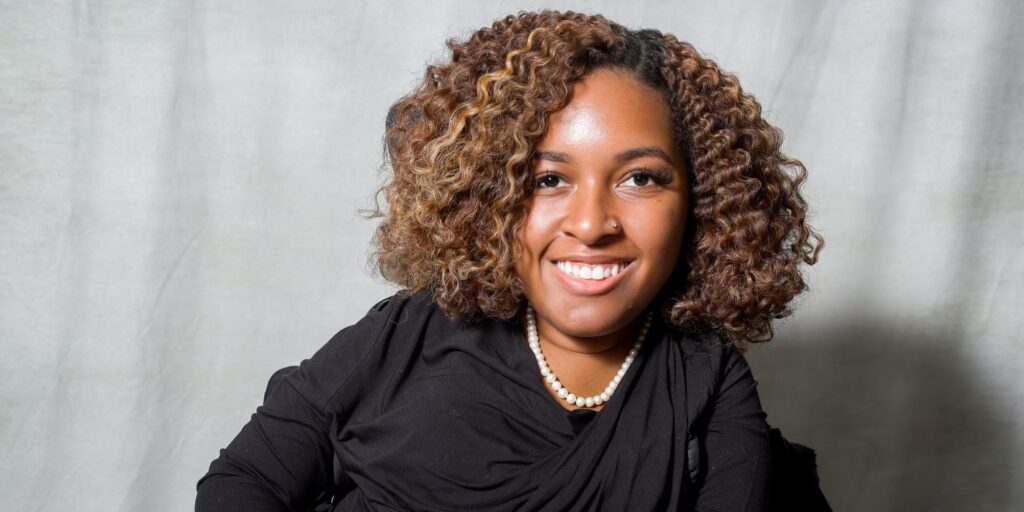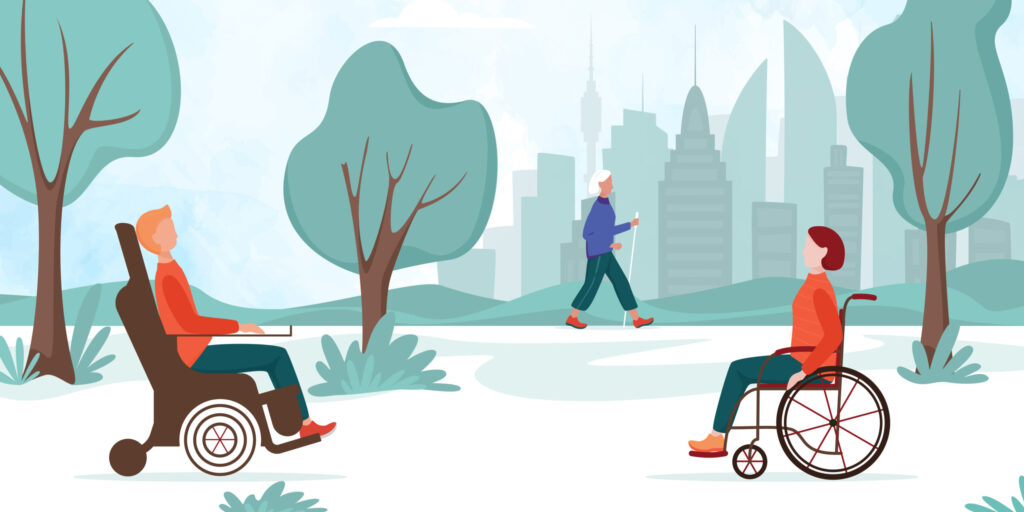
Tips for Adults With Disabilities Who Want to Live on Their Own
By Karen Doss Bowman | Thursday, May 18, 2023
5 Second Summary
More Americans with disabilities are living independently. Here’s how some of them are using community resources and self-advocacy to make it happen.
More Americans with physical disabilities are living on their own, working or volunteering, starting families, and leading full lives.
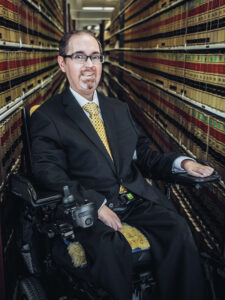
Gil Vasquez
This makes sense, as medical treatments and care advance, because those with neuromuscular diseases are uniquely prepared for these experiences. Throughout their lives, most have been taught to face adversity, advocate for themselves, manage personal care attendants, and access resources vital to their care. These skills offer an advantage when it comes to adaptability and problem-solving.
Gilbert “Gil” Vasquez of San Antonio, embodies that spirit. The 43-year-old, who was born with spinal muscular atrophy (SMA) and needs 24-hour care, has proven time and again his capacity to set goals and achieve success. For example, after earning a Master of Business Administration degree in 2005, he worked for a decade in the banking industry. In his 30s, he decided to make a career change and enrolled in law school, graduating in December 2020.
These academic and professional accomplishments — and the life skills he’s learned along the way — gave Gil the confidence to move forward last year with his lifelong dream of living independently. Last December, he bought a house and moved out of his parents’ home. Now, he lives with his partner, who shares expenses and provides backup care when necessary.
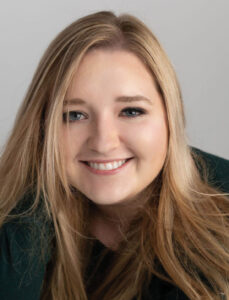
Sarah Dunks
“When you live in a situation where assistance is needed and always available, it’s easy to stay in your comfort zone,” says Gil, an attorney in private practice and adjunct professor at St. Mary’s University School of Law, his alma mater. “Because of my condition, I rely on others for everything. But when I became an adult and didn’t have a place of my own, I didn’t feel complete. So being able to live independently, even with the challenges, is worth it.”
Sarah Dunks, Accessibility Assessment and Aging-in-Place Specialist with Options for Independent Living, a Center for Independent Living in Wisconsin, regularly works with adults like Gil. “People with disabilities gain an even greater sense of self-worth and quality of life knowing they can live independently,” she says. “That independence can make them an even stronger person. The experience could be a stepping stone to going out into the community, getting a job, and contributing to society in that way. It’s just this trickle effect that can happen.”
Leaving the nest
Parents naturally worry about their children — even if those children are adults — when they leave the nest. When Rodrigo Duran, of McKinney, Texas, decided to move into an apartment nearly four years ago, he had a heart-to-heart talk with his mother to allay her concerns.
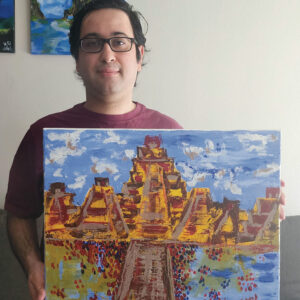
Rodrigo Duran
The 31-year-old artist, who lives with congenital muscular dystrophy (CMD) and epilepsy, assured her that he had carefully chosen two trustworthy roommates — one of whom is also his partner. They understand Rodrigo’s disabilities, are prepared to help him, and know how to reach his family in case of an emergency.
“I asked my mom to give me a chance to learn for myself what I can and cannot do,” says Rodrigo, who walks with a cane and has difficulty standing up from a sitting position. “It gave her peace of mind knowing that my roommates know how to help me if something goes wrong.”
Options for independence
For Beckley Lorenz, a 26-year-old living with Duchenne muscular dystrophy (DMD), moving into a licensed residential community for people with intellectual and developmental disabilities gave him the opportunity to live independently while receiving the care and services he needs. The Maryland man — who fought a successful legal battle to live in the community of his choice after the Maryland Department of Health initially denied him — moved last June into a house with two other residents. A “house mom” lives onsite and helps with cooking, cleaning, and transportation. Nursing staff visit every few weeks to check on him.
Beckley’s new home is only 20 minutes from his parents’ house and the community where he was raised. This arrangement allows him to be independent and still be surrounded by a loving and familiar support system.
“Through this legal battle, I’ve learned that anything is possible when you believe in yourself and surround yourself with people that love and support you,” says Beckley, who loves hanging out with friends, going to the movies, and playing Scrabble.
His mother, Michele, reinforces that message. “That’s kind of the attitude we’ve always had because you never know what is going to be the next obstacle. And now, he can make his own decisions and advocate for himself,” she says. (Read more of Beckley’s story in How a Man With DMD Won His Right to Live Independently.)
Practical tips for adulting

Carlos Colon
Moving into your own home can be an exciting adventure. But the responsibilities of adulting can be overwhelming for anyone. Adding the unique challenges of living with a neuromuscular disease requires careful planning. These five tips can ensure a smooth transition.
- Find a place configured to your needs. Consider your accessibility needs and look for homes or apartments that have these accommodations in place or can be modified. For example, does the dwelling have a ramp or lift? Are the interior and exterior doors wide enough for a wheelchair to pass through? If you’re renting, what types of modifications will the landlord allow you to make? You’ll want a responsive landlord with good communication skills.
- Plan for practical needs. How will you manage daily living tasks, such as getting groceries, cooking, and housecleaning? Can you drive yourself to employment, social outings, or medical appointments, or will you need to call on family, friends, or a transportation service? Be sure these supports are in place wherever you decide to live.
- Create a budget. Whether your income is earned through a job or disability benefits such as Social Security or Medicaid, make a budget to ensure that you can meet your expenses each month. When Carlos Colon, of Puerto Rico, moved into an apartment with his girlfriend, he had to think more carefully about money to navigate the new responsibilities of paying for rent and utilities, buying groceries, and other expenses.
“When you’re living with your parents, you don’t have to think about those things as much,” says Carlos, 29, who is studying for a doctoral degree and lives with Charcot-Marie-Tooth disease (CMT). “You have to establish priorities. Maybe you cook your own meals instead of going out to eat as much, for example. You have to change your mindset and take steps to facilitate your new way of living. If you want to live independently, you have to develop autonomy.”
- Build a support network. One of the biggest challenges of moving away from your family is hiring and managing caregivers. About a week after moving into his new home, Gil’s daytime caregiver quit. He has struggled to find a replacement and is relying on his roommate for care during those hours. “You can have everything perfectly planned out, and then all of a sudden, life throws a curve ball at you,” Gil says. “Nobody can do everything on their own. You always need help around you from people you can trust.”
Keep a list of family and friends who can be on call to provide backup care when needed. You’ll also want to stay close to people who can provide emotional support when times get tough and join you in celebrating life’s victories.
- Seek resources. Contacting your local Center for Independent Living is a good starting point. This nationwide network of organizations was established to support community living and independence for people with disabilities. They can help you think through the pros and cons of your choices, explain rental agreements, or point you to other helpful resources.
“Independent living centers have many staff and board members who are people with disabilities, so it’s not just that we have helpful information — we have experienced the same situations as many of our clients,” says Sarah. “We are able to offer connections and mentoring.”
Karen Doss Bowman is a freelance writer and editor living with progressive muscular atrophy, a subset of ALS, in Bridgewater, Virginia.
Getting By With Help From Friends
When it comes to facing the unknown, it’s helpful to connect with others in similar situations. The MDA Peer Connections Program helps folks in the MDA community build connections with people of all ages — from parents of children to individuals in their 90s. The program is open to anyone in the neuromuscular disease community — individuals living with neuromuscular diseases, caregivers, parents, spouses, and siblings.
Ready to make connections? Contact MDA’s Resource Center at 833-ASK-MDA1 or ResourceCenter@mdausa.org. After gathering information about you and your interests, MDA’s care specialists will connect you with others living with relatable and shareable experiences.
Next Steps and Useful Resources
- Learn more about living independently with a disability.
- Managing your own money is an important part of independent living. Build your financial know-how with MDA’s educational workshop Access to Financial Independence.
- Stay up-to-date on Quest content! Subscribe to Quest Magazine and Newsletter.
Disclaimer: No content on this site should ever be used as a substitute for direct medical advice from your doctor or other qualified clinician.




